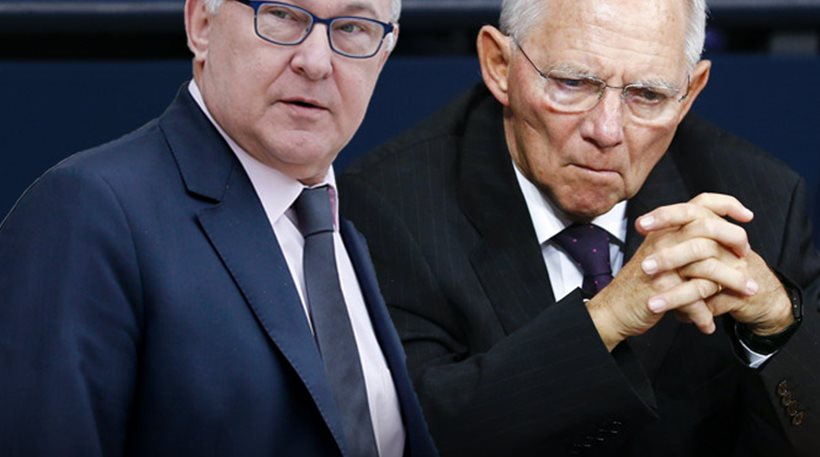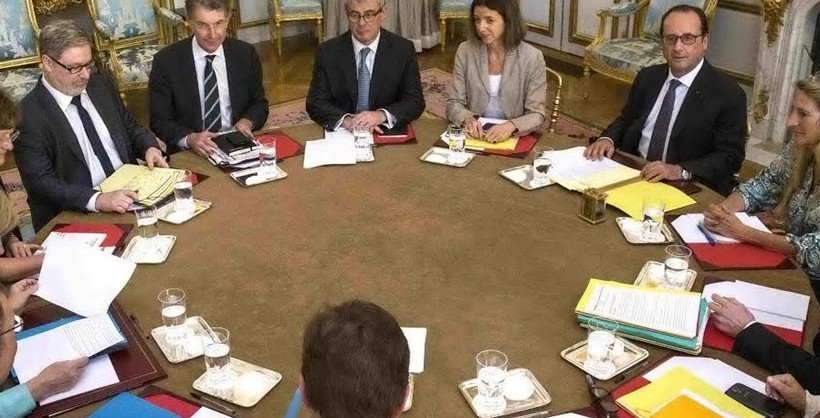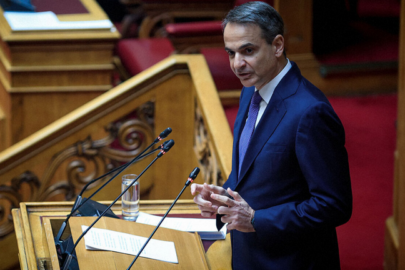Reactions continued on Monday afternoon in the wake of the landslide “no” vote a day earlier in the Greek referendum, with French President Francois Hollande and German Chancellor Angela Merkel saying on Monday that the door was open for a return to bailout negotiations although it was now up to Athens’ radical leftists to make detailed proposals.
“The door is open to discussions and it is now up to the government of Alexis Tsipras to make serious, credible proposals so that this willingness to stay in the eurozone can translate into a lasting program,” Hollande said.
“I stress the fact that time is running out and there is urgency, urgency for Greece and urgency for Europe,” he said after receiving Merkel in Paris.
The German chancellor reiterated that conditions for a new rescue package “have not yet been met”.
“And that is why we are now waiting for very precise proposals from the Greek prime minister, a programme that will allow Greece to return to prosperity,” he added.
The talks come ahead of the latest eurozone meeting on Tuesday.
Lagarde
From Washington, IMF chief Christine Lagarde said the Fund stands “ready to assist Greece if requested to do so.”
“We are monitoring the situation closely,” she said, without offering further details.
Greece is in arrears to the IMF, having failed to pay a 1.5 billion-euro payment due last Tuesday. The IMF said it couldn’t get involved in a further bailout of Greece if the country remained in arrears.

Schaeuble
German Finance Minister Wolfgang Schaeuble noting from Warsaw that Yanis Varoufakis’ successor will also have a tough time working out a deal with European creditors.
“Anyone who succeeds him will be in a situation where it is not easy to find a solution with his colleagues in the Eurogroup to his country’s problems, which are not simple,” Schaeuble said, hours before Eucleid Tsakalotos was announced as Varoufakis’ successor.

Gabriel
Another German leader, Economy Minister and Social-Democrat leader Sigmar Gabriel was quoted by the Tagesspiegel newspaper as saying that “with the rejection (no vote) of the rules of the eurozone… negotiations about a program worth billions are barely conceivable.”
Gabriel was also uncharacteristically unforgiving in his criticism of Greek PM Alexis Tsipras and the ruling party, leftist SYRIZA, charging that they are “leading the Greek people on a path of bitter abandonment and hopelessness”.
The German coalition partner charged that Athens has “torn down the last bridges on which Greece and Europe could have moved towards a compromise”.
Sapin
On his part, French FinMin Michel Sapin on Monday said it is up to the radical leftist government to come up with an offer after the referendum vote.
“The basis of a dialogue is on the table, but it’s up to Greece to show us that it takes the dialogue seriously and that it knows it can stay in the euro and that there are decisions to make.”
Dutch PM Rutte; Dijsselbloem
Dutch Prime Minister Mark Rutte said the “no” vote complicated the situation even more, while his FinMin, Eurogroup head Jeroen Dijsselbloem, was asked if it’s still worth talking to official Athens.
“We will see. We are going to see in the coming days if there are still openings. But there are no easy solutions.”
FT’s Spiegel says eurozone looking for ‘Grexit’ legal basis
Meanwhile, FT’s Brussels bureau chief Peter Spiegel, who has emerged as keen Greece and SYRIZA government watcher in the “Greek crisis epoch”, wrote on his blog that eurozone officials, EU legal scholars “have been combing through the treaties to find provisions that would allow for Grexit – not because it is something they’re pushing for, but rather because they’re worried the country could be soon entering a legal limbo that could prevent it from getting the financial aid it desperately needs.”
According to Spiegel, “If Greece begins printing its own money – which could happen in a matter of weeks if the European Central Bank decides to cut off emergency loans to Greek financial institutions – it may no longer be eligible for aid from the eurozone’s €500bn rescue fund, since it is using a different currency.”

Further down his blog posting, Spiegel pointed to Article 7, which he said was adopted for a very different reason: “In the wake of the Austrian government’s decision to include the far-right Freedom Party of nationalist Jörg Haider in a coalition, EU leaders wanted a way to punish countries that did not live up to European values.”

































